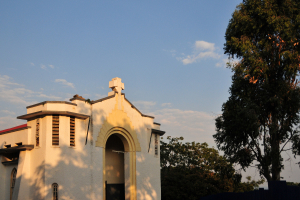Christians Call for Quick Int'l Action to End Conflict in Somalia
Churches and relief agencies working in East Africa have called on the international community to increase its presence in war-torn Somalia as they expressed their alarm over yet another outbreak of violent conflict in the country.
Churches and relief agencies working in East Africa have called on the international community to increase its presence in war-torn Somalia as they expressed their alarm over yet another outbreak of violent conflict in the country.
"It is about time the international community said: 'Let us not leave the Somalis to help themselves,' We need to say enough is enough," Karimi Kinoti, Christian Aid’s regional representative in Somalia, told Ecumenical News International in Nairobi.
Violent conflict has flared up again in the Somali capital, Mogadishu, in recent weeks between rival militias.
According to media reports the conflict that broke out near Mogadishu’s market place has forced hundreds of people to flee from their homes.
Kinoti said the conflict has made it difficult for relief agencies to operate in the region and bring urgently needed humanitarian aid to victims of the ongoing drought that has hit East Africa in recent months.
Tensions have remained in the region since a peace agreement for Somalia was signed in 2004. In a country that has had no effective government since the overthrow of President Siad Barre in 1991, the transitional government formed after the peace agreement has since struggled to take real control of the situation.
“Signing the agreement was one thing and implementation was another," said the Rev. Fred Nyabera, executive director of the Fellowship of Christian Councils and Churches in the Great Lake Region and the Horn of Africa. "The international community needs to move in now."
Dennis McNamara, special advisor on displacement for the U.N. already warned on May 30 that if fighting was not contained the conflict would intensify.
"We cannot afford to let it degenerate any further," McNamara told journalists. "It has been ignored for too long. We cannot continue to do that.”




























